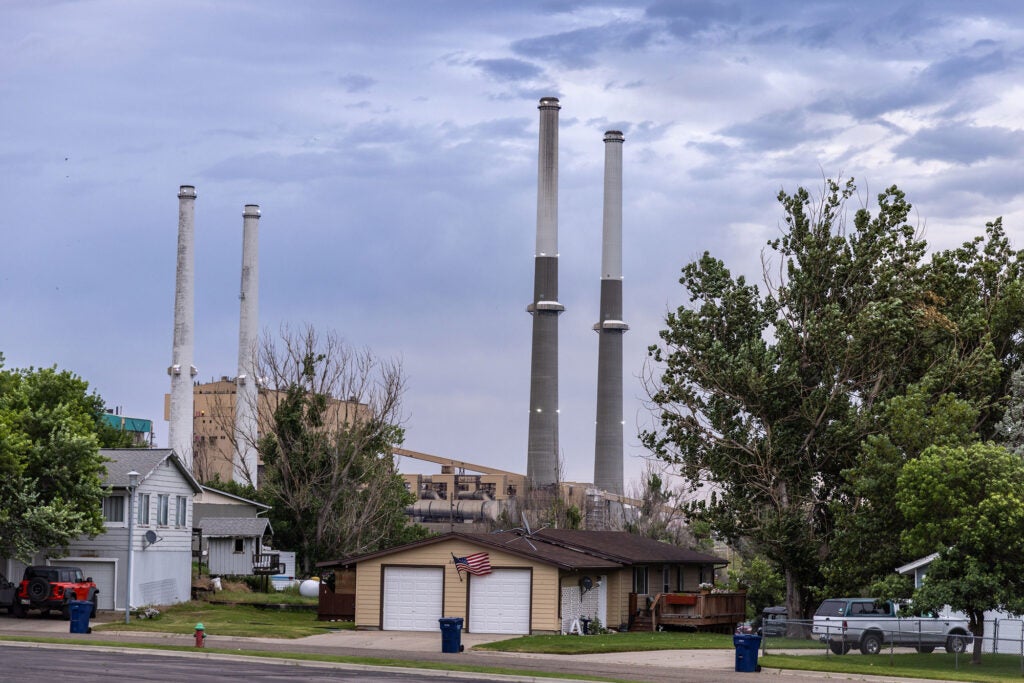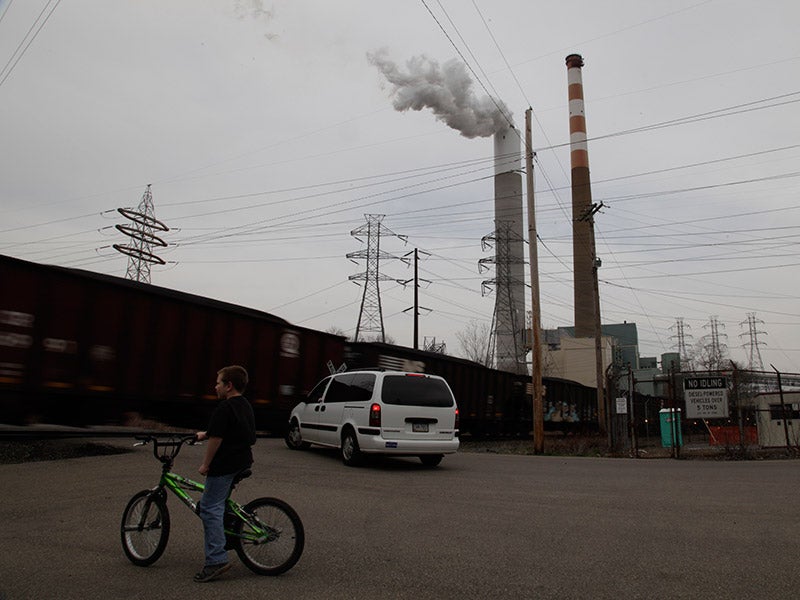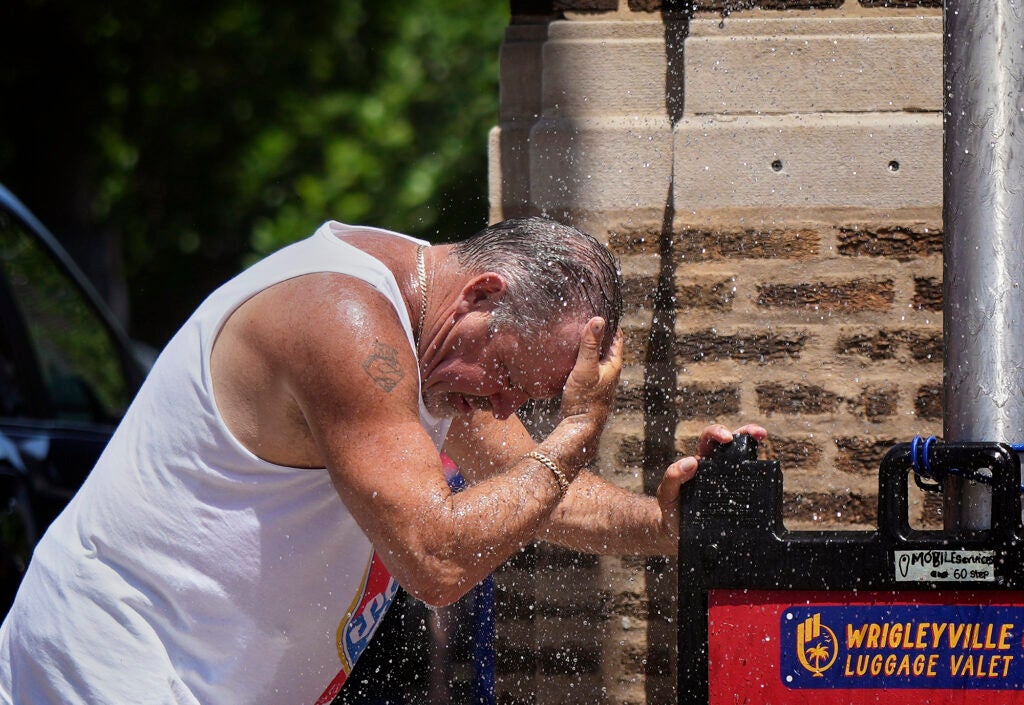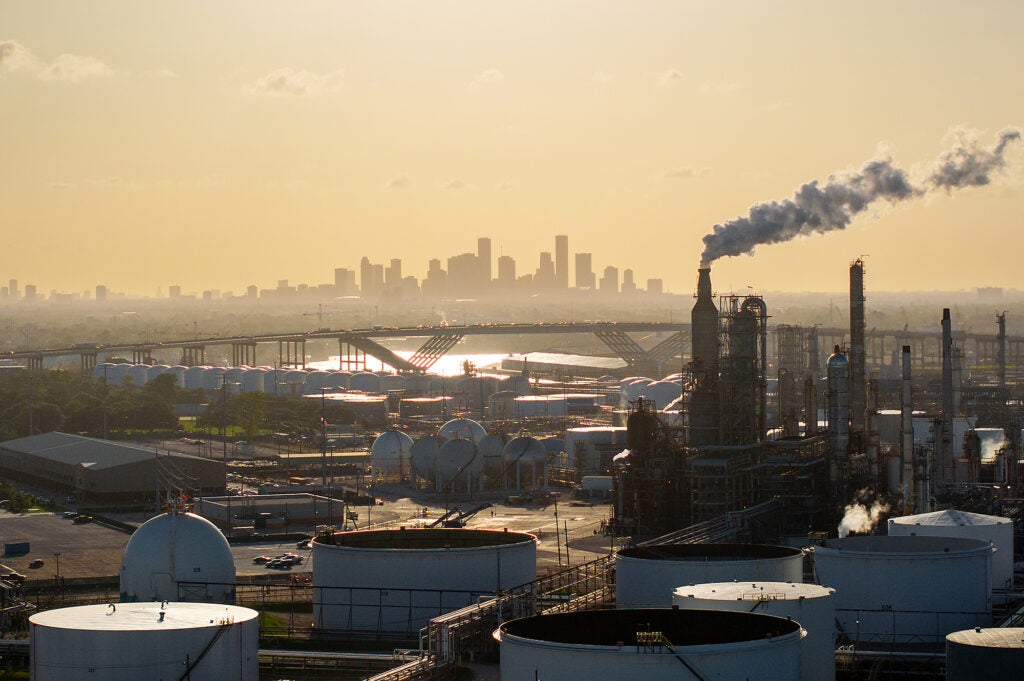(202) 667-4500
dcoffice@earthjustice.org
Media Inquiries
Tylar Greene
Public Affairs and Communications Strategist
tgreene@earthjustice.org
Legal Assistance Inquiries
Legislative Inquiries
Contacto de Prensa
Robert Valencia
Estratega de Comunicaciones y Asuntos Públicos Hispanos/Latinos
rvalencia@earthjustice.org
Earthjustice’s Washington, D.C., office works at the federal level to prevent air and water pollution, combat climate change, and protect natural areas. We also work with communities in the Mid-Atlantic region and elsewhere to address severe local environmental health problems, including exposures to dangerous air contaminants in toxic hot spots, sewage backups and overflows, chemical disasters, and contamination of drinking water. The D.C. office has been in operation since 1978. See bar admissions for our attorneys.
Our Impact
Limiting Dangerous Air Pollution
Strong national clean air health standards and pollution limits for industry are critical to protecting people’s health at the community level where exposures to dangerous air contaminants occur.
We focus on strengthening air pollution limits and permits across many industries, expanding emissions monitoring, closing enforcement loopholes, and partnering with fenceline communities facing some of the most severe cumulative health and safety threats from air pollution.
Highlights of our clean air work:
- We are litigating and advocating for stronger national air quality standards for soot and smog to protect public health and well-being, and tougher limits on interstate air pollution. We’re fighting to keep dangerous toxic air pollutants from harming communities and the environment. We work alongside residents living at the fencelines of polluting facilities who seek stronger protections against toxic fumes in the air they breathe and safeguards from chemical disasters. We have worked to curb toxic emissions from a host of industries, including:
- Fossil fuel combustion and waste incinerators: power plants, coke ovens, cement kilns, hazardous waste incinerators, industrial waste incinerators
- Pulp and paper industries: pulp mills, plywood plants
- Metal industries: steel mills, secondary lead smelters, ferroalloys production, chrome plating facilities
- Refineries, petrochemical plants, and plastics industries: organic chemical manufacturing, oil refineries, Ethylene Production, Organic Liquids Distribution, Polyether Polyols Production, PVC plants
Protecting the Nation’s and the Region’s Waters
We fight to secure stronger protections against water pollution both nationally and in the Washington, D.C., region and work with underserved communities seeking to stop sewage overflows and backups.
Highlights of our work include:
- Alongside community and conservation groups, we have long-standing, ongoing work to protect and restore District of Columbia rivers, including the Anacostia, Potomac, and Rock Creek.
- We are fighting on behalf of underserved communities in Alabama and Illinois who live in areas with inadequate sewage systems. Together, we are working to bring an end to sewage overflows and to the discrimination and marginalization that disproportionately burdens these communities.
- We’re working to protect and restore the Susquehanna River — the longest river on the East Coast — and the Chesapeake Bay, including by mitigating harms from the 100-year-old Conowingo Dam. For more than 100 years, the Dam’s owners have allowed sediment and other pollutants to build up behind it, and now that pollution surges through and over the Dam in increasingly frequent and violent storms, smothering aquatic vegetation in the Bay and killing oysters, crabs, and fish.
- For many years, we worked in federal courts to bring the protections of the Clean Water Act to the people, communities, and waters of Appalachia from the devastating impacts of mountaintop removal coal mining, including joining with allies to successfully defend the EPA’s historic veto of the massive Spruce No. 1 Mine.
Protecting Communities and the Planet From Climate Pollution
We advocate for swift and impactful national limits on greenhouse gas pollution and strong federal energy efficiency standards to protect our climate for future generations.
Highlights of our work include:
- For more than two decades, our work has helped to build up the EPA’s legal power to limit climate pollution. We and others challenged EPA’s refusal in 2003 to set limits on carbon emissions — leading to the landmark U.S. Supreme Court Massachusetts v. EPA decision — and then continued work to uphold the agency’s authority and obligation to regulate carbon polluters under the Clean Air Act.
- Under that authority, the EPA issued the first-ever nationwide standards limiting carbon pollution from cars and trucks and power plants, standards we worked to defend.
- We have long engaged in litigation and advocacy to strengthen federal energy efficiency standards — the cleanest, cheapest path to reducing greenhouse gas emissions — for a wide range of products, from electric transformers to light bulbs to appliances, preventing pollution and saving consumers money.
Right to Zero Campaign
We recently launched our regional Right to Zero campaign, pressing for zero-emission strategies to curb unhealthful and climate-damaging pollution from the power, transportation, and building sectors in the District of Columbia, Maryland, and Virginia.
One of our first efforts has been to press Metro — the regional transit agency — to convert its fleet of 1,500 diesel and other fossil-fueled buses to a zero-emission electric fleet. Other initiatives will include:
- Seeking to move the region away from reliance on polluting coal and gas-fired power plants, and toward zero-emissions renewable sources of electricity.
- Advocating for updated building codes, creating incentives to install zero-emissions heat pumps, and strengthening energy efficiency standards to improve air quality and reduce climate pollution.
- Calling for adoption and enforcement of zero-emission standards for trucks.
- Ensuring full and timely implementation of the District of Columbia’s Omnibus Clean Energy law that calls for 100% of the District’s power to come from renewable sources by 2032, a transition to zero emissions for government and fleet motor vehicles on a set schedule, and adoption of standards requiring commercial and multi-family buildings to reduce their energy use by 20%.
- Working with community partners to ensure that zero emission and other programs are implemented in a way that benefits and does not burden low income and historically underserved communities.
Ensuring Equitable and Science-based Decision-making for Our Health and Environmental Protections
We work to ensure that members of the public have meaningful opportunities for input into decisions impacting their health and communities and that government action on environmental matters is based on the best available science.
Highlights of our work include:
- We work to remove language barriers to meaningful public participation by those impacted by pollution in decisions on the siting of polluting facilities and infrastructure. Across the country, language-access barriers exclude non-English speakers from civic processes, perpetuating environmental injustices.
- We successfully challenged a Trump-era EPA policy that excluded highly qualified, independent scientists from scientific advisory boards that ensure the integrity of science at the agency. Under the illegal policy, publicly funded scientists were removed and replaced with advocates for the polluting industries that the agency is charged with regulating.




